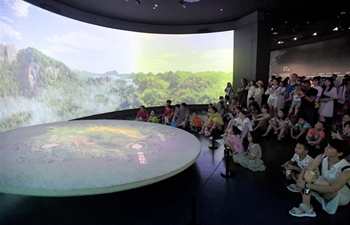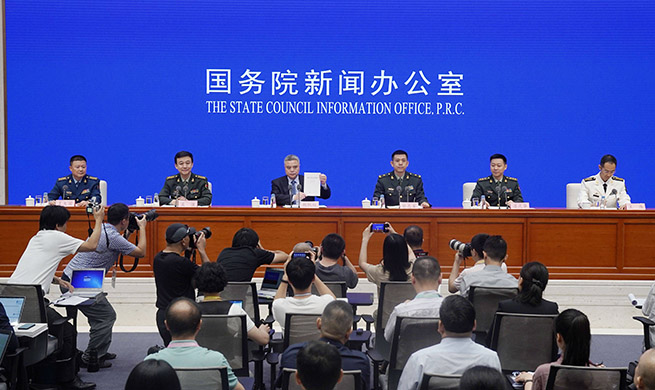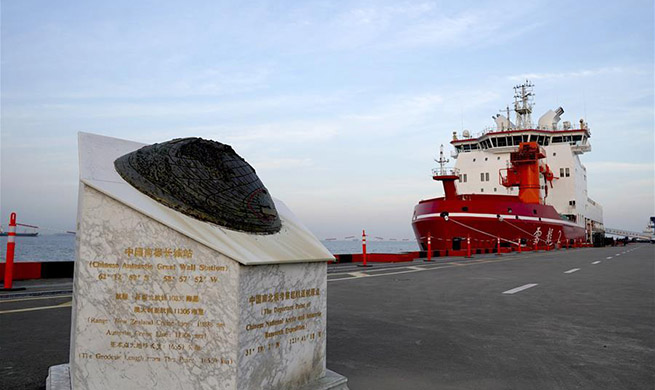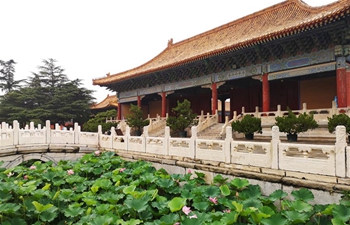BEIJING, July 24 (Xinhua) -- China and the United States should meet each other halfway and strengthen in-depth communication to jointly seek innovative solutions to frictions, according to experts with think tanks.
Scholars and experts discussed the inner logic of China's development and argued against fallacies brought up by some U.S. politicians at a symposium held by the National Academy of Development and Strategy under Renmin University of China.
Some Americans claimed that China's slower GDP growth, 6.3 percent in the first half and 6.2 percent in the second quarter, was the result of additional tariffs imposed by the United States, said Hu Angang, director of the Center for China Studies at Tsinghua University.
However, the slowdown was in line with China's economic transition from high-speed growth to high-quality development, Hu said.
"China remains the greatest driver for the growth of global economy, trade, investment and consumption," Hu said, adding the country's economy, with its particular resilience and energy, is still on the track of medium-high growth.
China saw its exports expand 6.1 percent and imports up 1.4 percent in H1. With the country's foreign trade markets becoming increasingly diverse, trade surplus widened by 41.6 percent year on year in the period.
The country's increasing imports, as a result of its strong growth, have significant "pulling effect" on the exports of other countries, said Lin Guijun, former vice president of the University of International Business and Economics (UIBE).
He estimated that for each 1-percent increase in China's GDP, there was a rise of 1.28 percent in income spent on imported goods during the 1995-2017 period.
Liu Qing, a researcher from Renmin University of China, said China's exports of high-quality and inexpensive intermediate products reduced downstream costs, helping expand production and boost employment in importing countries.
The attempt to decouple the U.S. economy from that of China would only harm the global economy, said Li Wei, a researcher with the Chinese Academy of International Trade and Economic Cooperation.
If high tariffs hindered China's exports to the United States, its imports of intermediate goods from all over the world would fall, which would in turn hurt enterprises in both developed and developing countries, Li added.
Experts attending the symposium believed China has made tremendous contributions to the innovation of the global economic cooperation model and governance structure.
As a constructive supporter of the global trade order, China has been fulfilling its WTO entry commitments, said Tu Xinquan, a professor at UIBE.
China should uphold the rule-based multilateral trade system, with continued efforts in deepening reform, wider opening up and supply-side structural reform, said Wei Jianguo, vice chairman of the China Center for International Economic Exchanges.

















